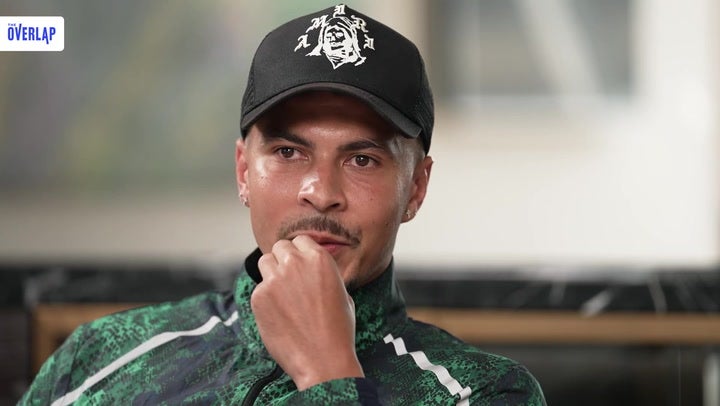Like Dele Alli, I became addicted to sleeping pills. This is what happened
It’s refreshing to see a successful footballer speak about his own difficult experiences with drug dependence, seemingly without shame or fear, writes Rebecca Tidy


I swallowed a quarter of a Zopiclone pill and wrapped myself in a duvet as I lay on the sofa. It was mid-morning in May 2015, and I hadn’t slept for seven days. I was halfway through cancer treatment and had developed an irrational fear of falling asleep, as it reminded me of death.
Within minutes, I felt my panic, terror and confusion slowly melt away. I soon felt relaxed enough to drift into a restful slumber for the first time in weeks. It was a beautiful feeling.
Unsurprisingly, it wasn’t long before I was taking Zopiclone every night, so I could forget my fears and get some rest. But instead of taking a quarter of a pill, I soon needed two tablets to relax enough to fall asleep.
A dose of this size came with unpleasant side effects too, including sleepwalking and eating. I’d often wake up on the sofa – surrounded by food – with no idea how I got there.
Everything revolved around Zopiclone, whether it was my twice-weekly trip to the pharmacy or my working days. I was unable to function unless I’d taken a pill and slept the night before.
I was one of an estimated one million Brits relying on sleeping pills each year. Yet I’ve never heard a colleague – or friend – mention using them. Thus, I was surprised to see the Everton midfielder and former England international, Dele Alli, bravely open up about his own dependence on these pharmaceuticals.
Appearing on The Overlap podcast, Alli told Gary Neville he was originally prescribed the medication to help him sleep on the nights before a big football match. But he was soon using the drug to “escape the reality” of his difficult upbringing.
Alli said he was sexually abused as a six-year-old and was selling drugs at the age of eight, which left him with lifelong trauma. It wasn’t until he spent six weeks in a US rehab facility earlier this year that he managed to reduce his dependence on sleeping pills.
I’m really thankful that Alli highlighted the need to deal with the underlying causes of dependence on sleeping pills. Sometimes it feels like even the most well-intentioned of people assume it’s simply a case of refraining from taking the drugs. My own family kept asking why I didn’t just cease using them. But it’s rarely that simple.
Without sleeping pills, I had intense panic attacks and constantly vomited. I was completely unable to function whether it was a simple trip to the shops or a walk through the park. It felt less frightening to simply keep taking the meds and tolerate the problematic side effects.
I’d repeatedly asked my GP for mental health support but I was placed on a three-year waiting list. It felt like there was no help available for even the most determined of people.
It wasn’t until I fell pregnant – and became eligible for a perinatal mental health service – that I managed to reduce my dependence on Zopiclone. An NHS psychiatrist diagnosed me with severe PTSD and OCD, saying they were caused by childhood trauma.
I was lucky enough to get help from a specialist mental health team. For around 18 months, I had weekly appointments with a psychologist and mental health nurse. I had fortnightly meetings with a nursery teacher who provided parenting support, plus a monthly catch-up with a psychiatrist.
By learning how to deal with the impact of my childhood trauma, I was able to gradually stop taking sleeping pills without experiencing any negative side effects. I learnt coping techniques and finally understood why I felt so frightened of sleeping.
Now I no longer feel embarrassed about my mental health struggles. I don’t blame myself for the fact I couldn’t do something as seemingly straightforward as falling asleep. Nor do I feel ashamed that I used to have nightly panic attacks.
Yet there remains a huge stigma around prescription drug addiction, whether it’s Zopiclone, Xanax or codeine. Too many of us are nervous to tell our doctors, families and friends about our struggles when drugs are involved. For me, it felt as though I was admitting to wrongdoing, but now I know I was simply trying my best to cope with a difficult situation.
I’m truly sorry that Alli’s traumatic childhood had such a big impact on his adult life. It’s really horrible to struggle with a lack of sleep and memories of frightening situations.
Yet it’s refreshing to see a successful footballer speak about his own difficult experiences, seemingly without shame or fear. I really hope that Alli’s honesty inspires anyone who is struggling with sleeping pill dependency to begin the process of getting help.






Join our commenting forum
Join thought-provoking conversations, follow other Independent readers and see their replies
Comments